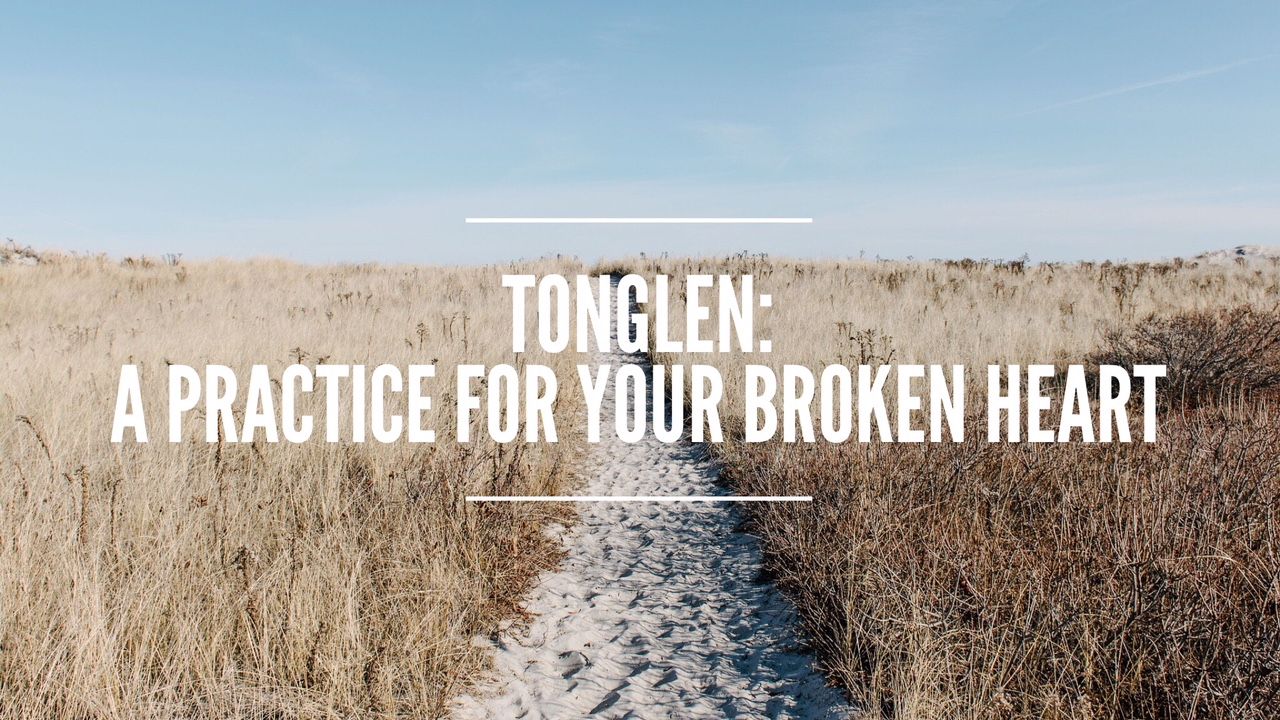On this September 11th, I am reminded, over and over, that we all have broken hearts.
We forget this sometimes, you know? Most of us are good at pretending. As a yoga and meditation teacher, I see it sometimes in class, as people beat up on themselves for falling out of Utthita Hasta Padangustasana, or feel it in their heaviness as they walk in the door making a wan effort to smile, or when they struggle, fidgeting, to give themselves permission to rest for even two minutes at the end of class in Savasana.
One of my own pet peeves as a student is when the teacher starts jabbering on and on about "finding your bliss." There you are, fighting to stay upright in Parivrtta Parsvakonasana, sweat dripping into your eyeballs, or trying not to itch your nose for the 14th time in seated meditation, and they're wandering around blabbing about rainbows and unicorns. Um, seriously? No. That's not how it works.
I've said it before and I'll say it again:
Yoga and meditation do not teach that you have to be perpetually perky. They mean you get to be real.
A crucial part of that realness is remembering how grounded our lives are in suffering. The fact of the matter is, we all suffer. (It's one of Buddhism's Four Noble Truths.) And because at one point or another we have all suffered, we know what it's like to be in pain, to feel empty, lost, confused, broken, and fearful. That empathy, that ability to relate, becomes the ground of our own compassion. Because when we're able to recall that heavy shadowy feeling within our own bodies, hearts, and minds, we're better able to reach out to those around us whose own darknesses might feel too great to bear.
Much of yoga and meditation practice is about learning to meet ourselves in moments of struggle, of chaos, of self-imposed difficulty — Warrior 3, anyone? — and remind ourselves that the struggle will pass, the chaos will abate, the difficulty will ease. That truth of impermanence then bleeds into our lives off the mat, so that when we're sitting with sorrow, or pain, or uncertainty, we can remind ourselves that, in the same way that Warrior 3's tension eventually resolved, so will our own emotional tumult blow right by.
I'm reminded of all this here, now, because it's the 18th anniversary of the September 11th attacks. I never quite know how to adequately mark this day. Anything I say or do feels inadequate, pithy, trite.
So I sat down this morning with Pema Chodron's beautiful, brief Lion's Roar teaching on Tonglen practice, and it gave me peace.
Pema writes:
The tonglen practice is a method for connecting with suffering — ours and that which is all around us — everywhere we go. It is a method for overcoming fear of suffering and for dissolving the tightness of our heart. Primarily it is a method for awakening the compassion that is inherent in all of us, no matter how cruel or cold we might seem to be.
We begin the practice by taking on the suffering of a person we know to be hurting and who we wish to help. For instance, if you know of a child who is being hurt, you breathe in the wish to take away all the pain and fear of that child. Then, as you breathe out, you send the child happiness, joy or whatever would relieve their pain. This is the core of the practice: breathing in other's pain so they can be well and have more space to relax and open, and breathing out, sending them relaxation or whatever you feel would bring them relief and happiness. However, we often cannot do this practice because we come face to face with our own fear, our own resistance, anger, or whatever our personal pain, our personal stuckness happens to be at that moment.
Breathe in one another's sorrow; breathe out one another's peace.
How simple, and how counterintuitive to the resistance we usually present to feeling all things dark or painful or difficult.
She continues:
People often say that this practice goes against the grain of how we usually hold ourselves together. Truthfully, this practice does go against the grain of wanting things on our own terms, of wanting it to work out for ourselves no matter what happens to the others. The practice dissolves the armor of self-protection we've tried so hard to create around ourselves. In Buddhist language one would say that it dissolves the fixation and clinging of ego.
So on the spot you can do tonglen for all the people who are just like you, for everyone who wishes to be compassionate but instead is afraid, for everyone who wishes to be brave but instead is a coward.
Rather than beating yourself up, use your own stuckness as a stepping stone to understanding what people are up against all over the world.
Breathe in for all of us and breathe out for all of us.
Use what seems like poison as medicine. Use your personal suffering as the path to compassion for all beings.
Use what seems like poison as medicine. Use your personal suffering as the path to compassion for all beings.
Wow.
It's just so powerful, isn't it? Suddenly the notion of taking on another's suffering becomes liberating, the source of compassion, just one more way in which we can remember that we are all connected.
Today, as all days, know you are beloved, that your life is interwoven with mine. And hold your dear ones close.

